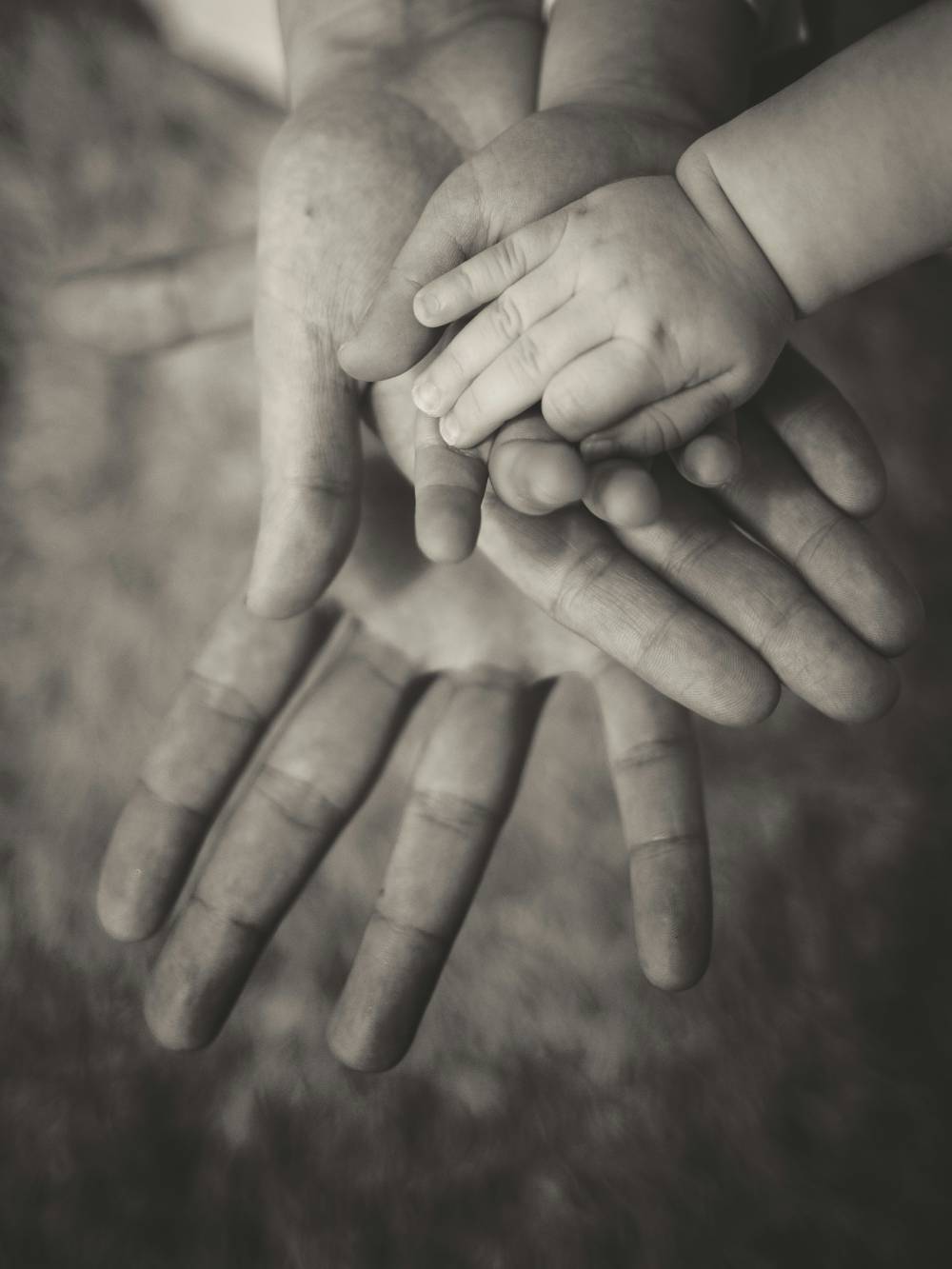
Obedience to Parents
Islam honors parents and assigns them a vital role within the family. They are responsible for their children, and they should provide them with the best care possible.
Allah orders Muslims to obey their parents, whether they are Muslim or Non-Muslim. This is an order of Allah, so every Muslim should obey Allah in this. Parents have various rights in Islam, and obedience is one of them.
Therefore, Muslims are instructed to obey their parents. How is this obligation implemented, and what are the conditions for obedience to parents? All questions will be answered in this article.
The obligation of obeying one's parents
Obedience to one's parents is a major obligation in Islam, applicable to all children, young or old. Although adults may have more autonomy due to their maturity, the duty to obey remains for both.
 حَدَّثَنَا أَبُو بَكْرِ بْنُ أَبِي شَيْبَةَ، وَزُهَيْرُ بْنُ حَرْبٍ، قَالاَ حَدَّثَنَا الْحَسَنُ بْنُ مُوسَى، حَدَّثَنَا زُهَيْرٌ، حَدَّثَنَا سِمَاكُ بْنُ حَرْبٍ، حَدَّثَنِي مُصْعَبُ بْنُ سَعْدٍ، عَنْ أَبِيهِ، أَنَّهُ نَزَلَتْ فِيهِ آيَاتٌ مِنَ الْقُرْآنِ - قَالَ - حَلَفَتْ أُمُّ سَعْدٍ أَنْ لاَ تُكَلِّمَهُ أَبَدًا حَتَّى يَكْفُرَ بِدِينِهِ وَلاَ تَأْكُلَ وَلاَ تَشْرَبَ . قَالَتْ زَعَمْتَ أَنَّ اللَّهَ وَصَّاكَ بِوَالِدَيْكَ وَأَنَا أُمُّكَ وَأَنَا آمُرُكَ بِهَذَا . قَالَ مَكَثَتْ ثَلاَثًا حَتَّى غُشِيَ عَلَيْهَا مِنَ الْجَهْدِ فَقَامَ ابْنٌ لَهَا يُقَالُ لَهُ عُمَارَةُ فَسَقَاهَا فَجَعَلَتْ تَدْعُو عَلَى سَعْدٍ فَأَنْزَلَ اللَّهُ عَزَّ وَجَلَّ فِي الْقُرْآنِ هَذِهِ الآيَةَ { وَوَصَّيْنَا الإِنْسَانَ بِوَالِدَيْهِ حُسْنًا} { وَإِنْ جَاهَدَاكَ عَلَى أَنْ تُشْرِكَ بِي} وَفِيهَا { وَصَاحِبْهُمَا فِي الدُّنْيَا مَعْرُوفًا}
حَدَّثَنَا أَبُو بَكْرِ بْنُ أَبِي شَيْبَةَ، وَزُهَيْرُ بْنُ حَرْبٍ، قَالاَ حَدَّثَنَا الْحَسَنُ بْنُ مُوسَى، حَدَّثَنَا زُهَيْرٌ، حَدَّثَنَا سِمَاكُ بْنُ حَرْبٍ، حَدَّثَنِي مُصْعَبُ بْنُ سَعْدٍ، عَنْ أَبِيهِ، أَنَّهُ نَزَلَتْ فِيهِ آيَاتٌ مِنَ الْقُرْآنِ - قَالَ - حَلَفَتْ أُمُّ سَعْدٍ أَنْ لاَ تُكَلِّمَهُ أَبَدًا حَتَّى يَكْفُرَ بِدِينِهِ وَلاَ تَأْكُلَ وَلاَ تَشْرَبَ . قَالَتْ زَعَمْتَ أَنَّ اللَّهَ وَصَّاكَ بِوَالِدَيْكَ وَأَنَا أُمُّكَ وَأَنَا آمُرُكَ بِهَذَا . قَالَ مَكَثَتْ ثَلاَثًا حَتَّى غُشِيَ عَلَيْهَا مِنَ الْجَهْدِ فَقَامَ ابْنٌ لَهَا يُقَالُ لَهُ عُمَارَةُ فَسَقَاهَا فَجَعَلَتْ تَدْعُو عَلَى سَعْدٍ فَأَنْزَلَ اللَّهُ عَزَّ وَجَلَّ فِي الْقُرْآنِ هَذِهِ الآيَةَ { وَوَصَّيْنَا الإِنْسَانَ بِوَالِدَيْهِ حُسْنًا} { وَإِنْ جَاهَدَاكَ عَلَى أَنْ تُشْرِكَ بِي} وَفِيهَا { وَصَاحِبْهُمَا فِي الدُّنْيَا مَعْرُوفًا}
Abu Hurayrah narrated: A man came to the Prophet of Allah (ﷺ), and asked, 'What do you command me to do?' He replied, 'Be dutiful towards your mother.' Then he asked him the same question again and he replied, 'Be dutiful towards your mother.' He repeated it yet again and the Prophet replied, 'Be dutiful towards your mother.' Then he put the question a fourth time and the Prophet said, 'Be dutiful towards your father.'"
[Al-Adab Al-Mufrad 6]
 ومن الفرائض بر الوالدين وإن كانا فاسقين وإن كانا مشركين فليقل لهما قولا لينا وليعاشرهما بالمعروف ولا يطعهما في معصية كما قال الله سبحانه وتعالى
ومن الفرائض بر الوالدين وإن كانا فاسقين وإن كانا مشركين فليقل لهما قولا لينا وليعاشرهما بالمعروف ولا يطعهما في معصية كما قال الله سبحانه وتعالى
[ص153 - كتاب الرسالة لابن أبي زيد القيرواني]
Ibn Abi Zayd al-Qayrawani said:
"Among the obligations is dutifulness to parents — even if they are major sinners or polytheists. One should speak to them gently and live with them honorably, but not obey them in disobedience to Allah, as Allah the Exalted has said."
[Kitab al-Risalah - Ibn Abi Zayd al-Qayrawani - Page 153]
Disobeying one's parents is a major sin
Whenever a Muslim’s parent commands something that is permissible and good, and it does not cause undue hardship, then disobeying that command is considered a major sin in Islam.
Such a Muslim would incur Allah's anger due to causing their parent's displeasure.
 حَدَّثَنَا آدَمُ، قَالَ: حَدَّثَنَا شُعْبَةُ، قَالَ: حَدَّثَنَا يَعْلَى بْنُ عَطَاءٍ، عَنْ أَبِيهِ، عَنْ عَبْدِ اللهِ بْنِ عُمَرَ قَالَ: رِضَا الرَّبِّ فِي رِضَا الْوَالِدِ، وَسَخَطُ الرَّبِّ فِي سَخَطِ الْوَالِدِ.
حَدَّثَنَا آدَمُ، قَالَ: حَدَّثَنَا شُعْبَةُ، قَالَ: حَدَّثَنَا يَعْلَى بْنُ عَطَاءٍ، عَنْ أَبِيهِ، عَنْ عَبْدِ اللهِ بْنِ عُمَرَ قَالَ: رِضَا الرَّبِّ فِي رِضَا الْوَالِدِ، وَسَخَطُ الرَّبِّ فِي سَخَطِ الْوَالِدِ.
'Abdullah ibn 'Umar said, "The pleasure of the Lord lies in the pleasure of the parent. The anger of the Lord lies in the anger of the parent."
[Al-Adab Al-Mufrad 2]
Disobeying one's parents can also be a reason one would enter Hellfire, as this is one of the biggest major sins.
 حَدَّثَنَا عَبْدُ اللَّهِ بْنُ مُنِيرٍ، سَمِعَ وَهْبَ بْنَ جَرِيرٍ، وَعَبْدَ الْمَلِكِ بْنَ إِبْرَاهِيمَ، قَالاَ حَدَّثَنَا شُعْبَةُ، عَنْ عُبَيْدِ اللَّهِ بْنِ أَبِي بَكْرِ بْنِ أَنَسٍ، عَنْ أَنَسٍ ـ رضى الله عنه ـ قَالَ سُئِلَ النَّبِيُّ صلى الله عليه وسلم عَنِ الْكَبَائِرِ قَالَ " الإِشْرَاكُ بِاللَّهِ، وَعُقُوقُ الْوَالِدَيْنِ، وَقَتْلُ النَّفْسِ، وَشَهَادَةُ الزُّورِ ". تَابَعَهُ غُنْدَرٌ وَأَبُو عَامِرٍ وَبَهْزٌ وَعَبْدُ الصَّمَدِ عَنْ شُعْبَةَ.
حَدَّثَنَا عَبْدُ اللَّهِ بْنُ مُنِيرٍ، سَمِعَ وَهْبَ بْنَ جَرِيرٍ، وَعَبْدَ الْمَلِكِ بْنَ إِبْرَاهِيمَ، قَالاَ حَدَّثَنَا شُعْبَةُ، عَنْ عُبَيْدِ اللَّهِ بْنِ أَبِي بَكْرِ بْنِ أَنَسٍ، عَنْ أَنَسٍ ـ رضى الله عنه ـ قَالَ سُئِلَ النَّبِيُّ صلى الله عليه وسلم عَنِ الْكَبَائِرِ قَالَ " الإِشْرَاكُ بِاللَّهِ، وَعُقُوقُ الْوَالِدَيْنِ، وَقَتْلُ النَّفْسِ، وَشَهَادَةُ الزُّورِ ". تَابَعَهُ غُنْدَرٌ وَأَبُو عَامِرٍ وَبَهْزٌ وَعَبْدُ الصَّمَدِ عَنْ شُعْبَةَ.
The Prophet (ﷺ) said, "They (some major sins) are:-- (1) Shirk, (2) To be undutiful to one's parents, (3) To kill a person, (4) And to give a false testimony."
[Sahih Bukhari 2653]
Disgraced is the one who disobeys his good parents in old age when they raised him with mercy, respect and kindness, only to be left in the cold and treated unjustly.
 حَدَّثَنَا خَالِدُ بْنُ مَخْلَدٍ، قَالَ: حَدَّثَنَا سُلَيْمَانُ بْنُ بِلاَلٍ، قَالَ: حَدَّثَنَا سُهَيْلٌ، عَنْ أَبِيهِ، عَنْ أَبِي هُرَيْرَةَ، عَنِ النَّبِيِّ صلى الله عليه وسلم قَالَ: رَغِمَ أَنْفُهُ، رَغِمَ أَنْفُهُ، رَغِمَ أَنْفُهُ، قَالُوا: يَا رَسُولَ اللهِ مَنْ؟ قَالَ: مَنْ أَدْرَكَ وَالِدَيْهِ عِنْدَ الْكِبْرِ، أَوْ أَحَدَهُمَا، فَدَخَلَ النَّارَ.
حَدَّثَنَا خَالِدُ بْنُ مَخْلَدٍ، قَالَ: حَدَّثَنَا سُلَيْمَانُ بْنُ بِلاَلٍ، قَالَ: حَدَّثَنَا سُهَيْلٌ، عَنْ أَبِيهِ، عَنْ أَبِي هُرَيْرَةَ، عَنِ النَّبِيِّ صلى الله عليه وسلم قَالَ: رَغِمَ أَنْفُهُ، رَغِمَ أَنْفُهُ، رَغِمَ أَنْفُهُ، قَالُوا: يَا رَسُولَ اللهِ مَنْ؟ قَالَ: مَنْ أَدْرَكَ وَالِدَيْهِ عِنْدَ الْكِبْرِ، أَوْ أَحَدَهُمَا، فَدَخَلَ النَّارَ.
Abu Hurayrah reported that the Prophet, may Allah bless him and grant him peace, said, "May his nose be dusted (i.e. may he be disgraced), may his nose be dusted, may his nose be dusted." They said, "Messenger of Allah, who?" He said, "The one who lives to see his parents or one of them in old age, and (still) enters the Fire."
[Al-Adab Al-Mufrad 21]
We are all imperfect, and that means there may be times when we fall short and disobey our parents in certain matters. When that happens, we should sincerely turn to Allah in repentance and make amends with our parents.
There might even be instances where we lash out, due to our impatience and low Eman. Whatever the case, parents deserve utmost respect, and we should strive to achieve their pleasure, as long as it remains reasonable and halal.
Allah forgives all sins, and He would not punish you for something you sincerely repent for.
 لَا تَقْنَطُوا۟ مِن رَّحْمَةِ ٱللَّهِ ۚ إِنَّ ٱللَّهَ يَغْفِرُ ٱلذُّنُوبَ جَمِيعًا ۚ إِنَّهُۥ هُوَ ٱلْغَفُورُ ٱلرَّحِيمُ ٥٣
Do not lose hope in Allah’s mercy, for Allah certainly forgives all sins. He is indeed the All-Forgiving, Most Merciful.
[39:53 Quran]
لَا تَقْنَطُوا۟ مِن رَّحْمَةِ ٱللَّهِ ۚ إِنَّ ٱللَّهَ يَغْفِرُ ٱلذُّنُوبَ جَمِيعًا ۚ إِنَّهُۥ هُوَ ٱلْغَفُورُ ٱلرَّحِيمُ ٥٣
Do not lose hope in Allah’s mercy, for Allah certainly forgives all sins. He is indeed the All-Forgiving, Most Merciful.
[39:53 Quran]
However, there is an exception to the rule that Muslims must obey their parents: abusive and cruel parents who traumatize their children. Such parents are not deserving of honour or obedience.
Many of these abusive parents are narcissistic, with the narcissistic father often being the one who manipulates his children into obedience through an authoritarian style of parenting. However, narcissistic mothers also use manipulation tactics, though not to the same extent or in the same way as narcissistic fathers.
What does obedience to parents look like?
It may be vague for many Muslims what obedience to parents actually means. In what must they obey their parents for example? Are there restrictions to this, or is the Muslim obliged to obey his parents in everything?
Islam is just, so no, Muslims do not have to obey everything their parents command them. However, one must obey his parents in what is good, and in whatever is not harmful to himself.
Let's look at some examples of what obedience to parents look like in Islam.
- Dressing modestly
- Assisting in minor house chores
- To cancel plans when there is a valid need for it
- Refraining from using foul language
- Refraining from bad behavior
- Not staying out late
- Coming to eat when they call you
- Occasionally driving your parents to appointments
- Performing your obligatory prayers on time
- Refraining from music and other forbidden things
And of course, Muslims are not obliged to obey their parents in everything, but whenever they are ordered to do something, they should try their best to obey their parents.
Obedience is never in that which is haram or harmful. This can range between many things.
- To lie or cheat
- To leave Islam
- Getting them things that are haram, such as alcohol or sigarettes
- Removing the Hijab for women, or to shave the beard for men
- Not marrying a person they dislike while the person is a good Muslim
- Not to maintain ties with certain family members who are good
- To attend a wedding where music or free mixing is present
- Celebrating non-Islamic festives like birthdays
- To divorce your spouse while he or she is a good Muslim
- To neglect your family in order to spend time with your parents
- Doing house chores and being their servant
- Being their financial doormat
All the mentioned are orders that many parents give to their children, yet Allah is just, and He will never order a Muslim to obey their parents in such things.
There is no obedience in that which harms you, this includes financial, spiritual, physical, and emotional hardship.


